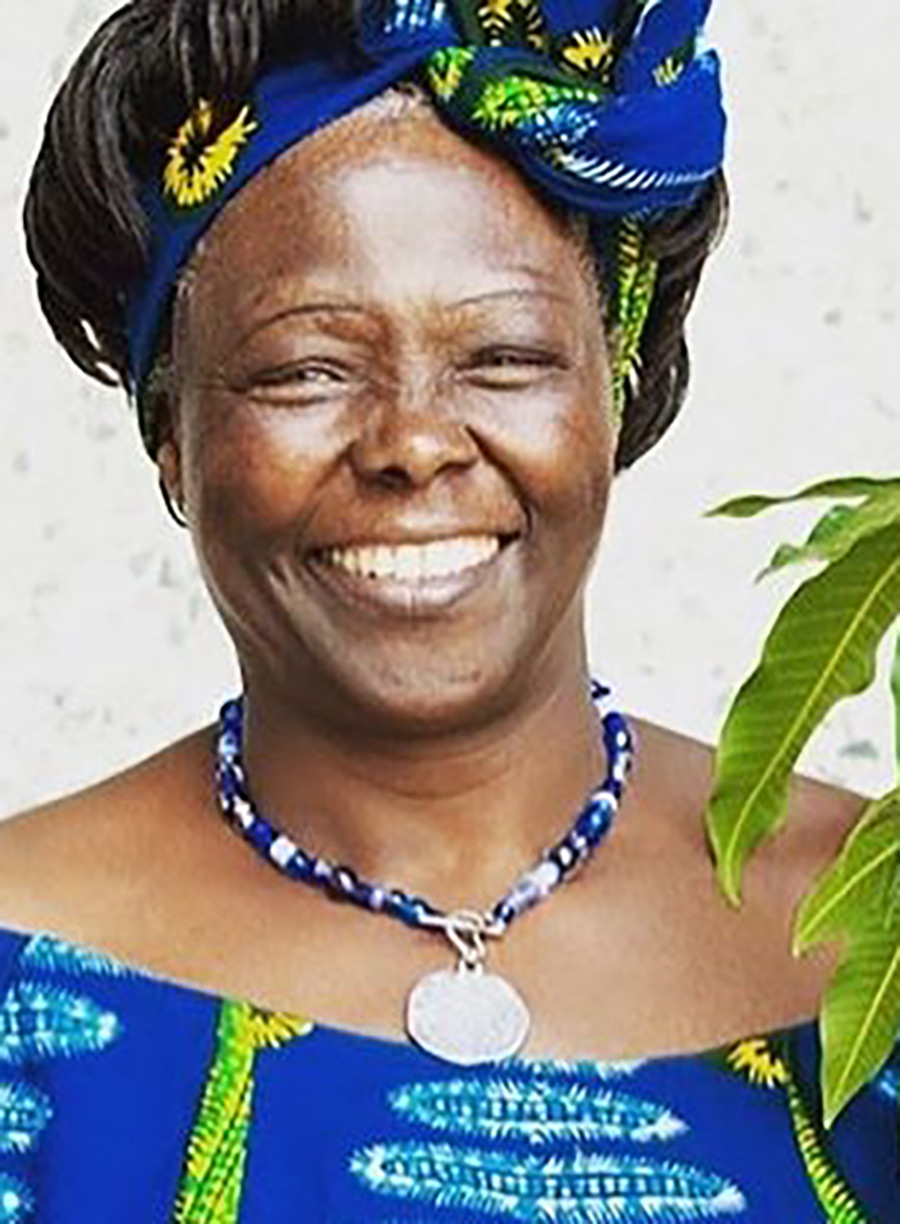
r. Wangari Maathai was born on Apr. 1, 1940 in Nyeri, Kenya. In 2004, Maathai became the first African woman to be awarded the Nobel Peace Prize for her work in environmental and economic justice. In 2005 she was one of Time Magazine’s “100 Most Influential People in the World.” In 2006 she was awarded the Indira Gandhi Prize for Peace, Disarmament, and Development, and the list of her awards goes on. In the effervescent eloquence of Carl Carlton, she was “A Bad Mama Jama.
Dr. Maathai’s concern for poor farming communities led her to connect the dots between Earth care and existential issues of food, fuel, clothing, gender inequality, disease, and warfare. Her organization, The Green Belt Movement, was responsible for planting over 30 million trees in a massive, international reforestation campaign. However, as she said in the following excerpt from her Nobel lecture in 2004, they weren’t sowing ordinary seeds:
“Although this prize comes to me, it acknowledges the work of countless individuals and groups across the globe. They work quietly and often without recognition to protect the environment, promote democracy, defend human rights and ensure equality between women and men. By so doing, they plant seeds of peace.”
Until her death in 2011, Dr. Maathai was always mindful that her personal achievements were only possible through communal action. The success of her activism depended upon collaborative networks of people who are often overlooked and undervalued by society’s hierarchies. Individually they had almost no sociopolitical power to change their situations. Together, they could literally help recreate their worlds.